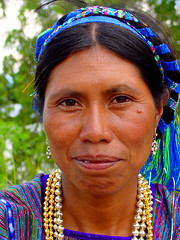How Global Warming Can Impact What's In Your Coffee Mug
From Africa to South America, something is brewing - and it isn't your morning cup of joe. At least, it might be today, but what about ten years from now? Or fifty? Or even one hundred? The earth's climate is changing, and the resultant crops are changing with it - including coffee.
What's Going On?
Shifting global temperatures have a direct impact on the growth of coffee plants, regardless of whether the shift is up or down. The first area of change comes in the constituency of the soil, whose chemical properties are modified, typically reducing the amount of water which can be held by the soil.
As the temperature of the earth increases, droughts become more frequent and plants struggle to find water from the soil - and if there isn't enough, the plants may begin to wilt and yield poor quality coffee cherries. A higher temperature also tends to encourage the proliferation of destructive insects, especially with the Arabica beans, which destroy the crops in their own struggle to stay alive.
Why Is This Happening?
That's a good question. Experts concerned with global warming are still trying to find a definite answer to the problem of greenhouse gases and other potential things that encourage climate change, but as for the direct reason why it will impact coffee plants and beans? The answer lies in the changing methods used to grow and farm the crops.
Plantations in places like Brazil and Columbia have made the shift from traditional, shade-grown beans to something called 'sun growth'. Sun growth requires clear-cutting of forests - which also has a devastating effect on the animal population - and only tends to give several profitable seasons of growth before the fields become fallow.
Places like Africa, India, and Central America still use the shade-growth method of production, which is best for the environment: the tree leaves decompose in the soil and replenish it with nutrients, the foliage provides a natural habitat for insects and therefore creates a barrier against their damage to the shrubs, and the trees help with maintaining the earth's delicate atmospheric balance.
Can the Impact Be Reduced?
The best answer to reducing global warming's impact on coffee plantations is to stick with buying a shade-grown product from a Fair Trade company. This small gesture salutes those countries that are trying to do what they can to save the world's crops from becoming so sparse that prices skyrocket - though in some countries like Kenya, drought has already pushed the price of beans upward due to the extremely small amount of production.
Flowering species such as the Coffea Arabica plant are at serious risk in today's changing environment, and small steps taken now to encourage those preventative measures will make a large difference in the long run. After all, no one wants to face a future without coffee.
Technorati Tags: coffee
What's Going On?
Shifting global temperatures have a direct impact on the growth of coffee plants, regardless of whether the shift is up or down. The first area of change comes in the constituency of the soil, whose chemical properties are modified, typically reducing the amount of water which can be held by the soil.
As the temperature of the earth increases, droughts become more frequent and plants struggle to find water from the soil - and if there isn't enough, the plants may begin to wilt and yield poor quality coffee cherries. A higher temperature also tends to encourage the proliferation of destructive insects, especially with the Arabica beans, which destroy the crops in their own struggle to stay alive.
Why Is This Happening?
That's a good question. Experts concerned with global warming are still trying to find a definite answer to the problem of greenhouse gases and other potential things that encourage climate change, but as for the direct reason why it will impact coffee plants and beans? The answer lies in the changing methods used to grow and farm the crops.
Plantations in places like Brazil and Columbia have made the shift from traditional, shade-grown beans to something called 'sun growth'. Sun growth requires clear-cutting of forests - which also has a devastating effect on the animal population - and only tends to give several profitable seasons of growth before the fields become fallow.
Places like Africa, India, and Central America still use the shade-growth method of production, which is best for the environment: the tree leaves decompose in the soil and replenish it with nutrients, the foliage provides a natural habitat for insects and therefore creates a barrier against their damage to the shrubs, and the trees help with maintaining the earth's delicate atmospheric balance.
Can the Impact Be Reduced?
The best answer to reducing global warming's impact on coffee plantations is to stick with buying a shade-grown product from a Fair Trade company. This small gesture salutes those countries that are trying to do what they can to save the world's crops from becoming so sparse that prices skyrocket - though in some countries like Kenya, drought has already pushed the price of beans upward due to the extremely small amount of production.
Flowering species such as the Coffea Arabica plant are at serious risk in today's changing environment, and small steps taken now to encourage those preventative measures will make a large difference in the long run. After all, no one wants to face a future without coffee.
Technorati Tags: coffee


0 Comments:
Post a Comment
<< Home